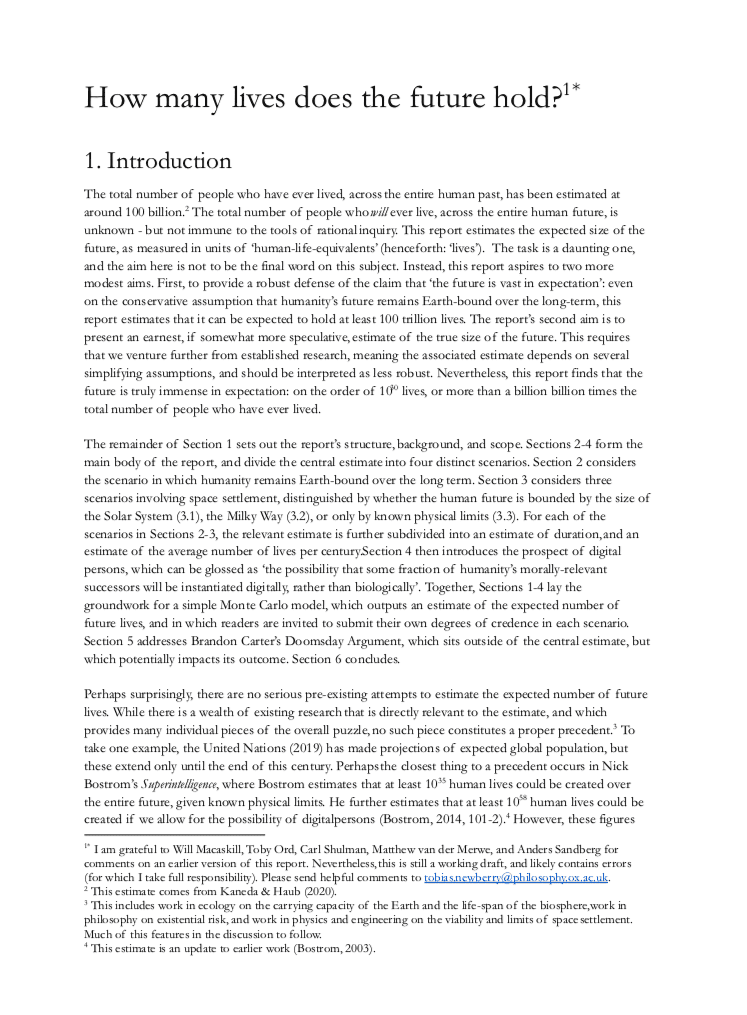How many lives does the future hold?
Toby Newberry (Future of Humanity Institute, University of Oxford)
GPI Technical Report No. T2-2021
The total number of people who have ever lived, across the entire human past, has been estimated at around 100 billion.2 The total number of people who will ever live, across the entire human future, is unknown - but not immune to the tools of rational inquiry. This report estimates the expected size of the future, as measured in units of ‘human-life-equivalents’ (henceforth: ‘lives’). The task is a daunting one, and the aim here is not to be the final word on this subject. Instead, this report aspires to two more modest aims...
Other working papers
Doomsday and objective chance – Teruji Thomas (Global Priorities Institute, Oxford University)
Lewis’s Principal Principle says that one should usually align one’s credences with the known chances. In this paper I develop a version of the Principal Principle that deals well with some exceptional cases related to the distinction between metaphysical and epistemic modality. I explain how this principle gives a unified account of the Sleeping Beauty problem and chance-based principles of anthropic reasoning…
A Fission Problem for Person-Affecting Views – Elliott Thornley (Global Priorities Institute, University of Oxford)
On person-affecting views in population ethics, the moral import of a person’s welfare depends on that person’s temporal or modal status. These views typically imply that – all else equal – we’re never required to create extra people, or to act in ways that increase the probability of extra people coming into existence. In this paper, I use Parfit-style fission cases to construct a dilemma for person-affecting views: either they forfeit their seeming-advantages and face fission analogues…
Ethical Consumerism – Philip Trammell (Global Priorities Institute and Department of Economics, University of Oxford)
I study a static production economy in which consumers have not only preferences over their own consumption but also external, or “ethical”, preferences over the supply of each good. Though existing work on the implications of external preferences assumes price-taking, I show that ethical consumers generically prefer not to act even approximately as price-takers. I therefore introduce a near-Nash equilibrium concept that generalizes the near-Nash equilibria found in literature on strategic foundations of general equilibrium…

